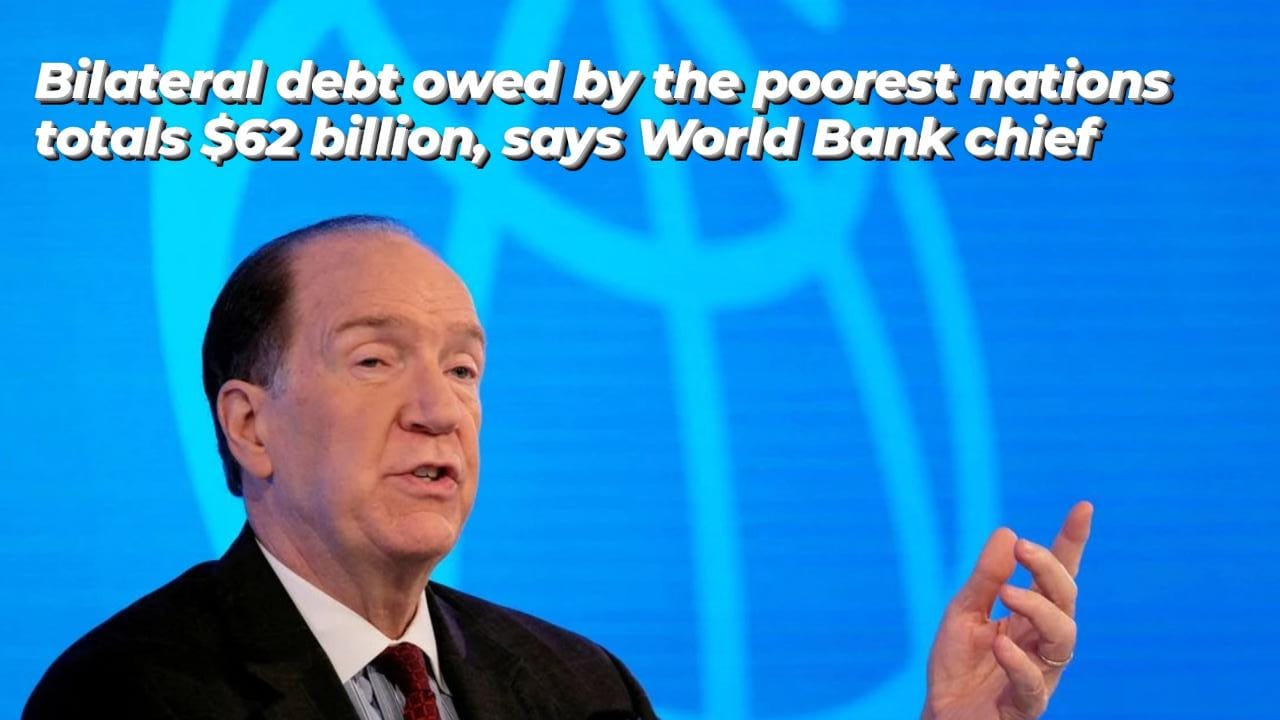
According to World Bank President David Malpass on Thursday, the world’s poorest nations now owe $62 billion annually in debt service to official bilateral creditors, an increase of 35% over the previous year. Malpass warned that the increased burden is raising the risk of defaults.
Two thirds of this debt load are currently owed to China, according to Malpass, who provided some information from the annual debt statistics report that the development lender is expected to release next week at the Reuters NEXT conference in New York.
Malpass said: ‘I’m concerned about a disorderly default process where there isn’t a structure to effectively address’ the obligations owed by poorer nations.
Malpass added that he was worried about the growing amount of debt in developed economies like the United States because it is diverting more money from developing nations.
Therefore, as interest rates rise, the debt servicing for advanced economies also rises, necessitating a significant infusion of global money.
Malpass announced that he would attend a meeting in China the following week with the leaders of other international organisations and Chinese officials to talk about the country’s policy toward debt relief for developing nations, COVID-19 policies, the turmoil in the real estate market, and other economic issues.
China is one of the major creditors, therefore it’s crucial that it deal with this issue, consider the direction the world is headed, and be willing to cooperate with what has to be done to ensure the sustainability of the nations.
Kristalina Georgieva, the head of the IMF, will also attend the meeting, which will be largely focused on debt management. Officials from the Export-Import Bank of China and the China Development Bank, two of the main bilateral lenders in the nation, will be there.
In a separate interview with Reuters Next, Georgieva stated that modifications to the G20 Common Framework on Debt Restructuring were required to speed up debt treatments, halt debt service payments once a country requested assistance, and make the procedure accessible to middle-income nations like Sri Lanka.
At a time when debt levels are very high, ‘we are concerned that there is a risk for confidence in debt resolution to be eroded,’ Georgieva said.
She stated, ‘We don’t see at this point… a risk of a systemic debt crisis,’ adding that debt-ridden nations were too small to start a crisis that would endanger global financial stability.

Post Your Comments